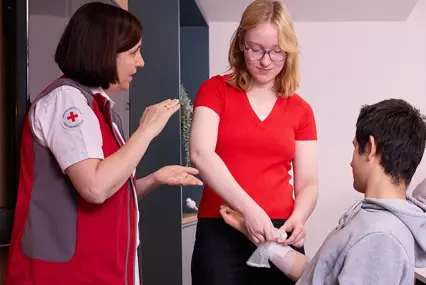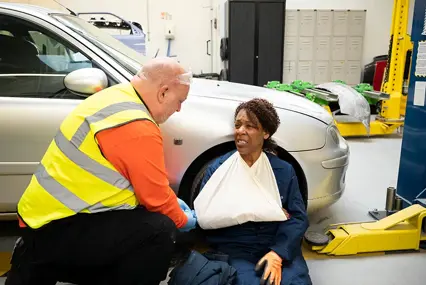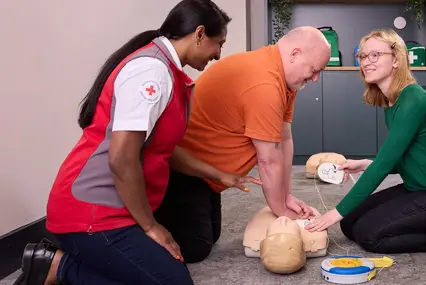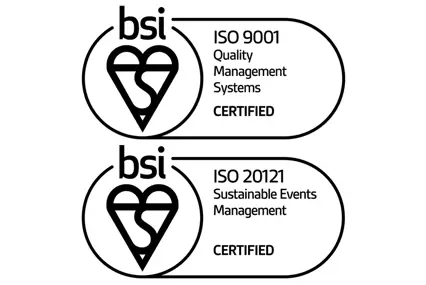How we raise the standards of first aid
How we are recognised as a standard setter when it comes to first aid training courses by the Health and Safety Executive and and how quality is maintained.
How being a recognised standard setter benefits you

Recognised standard setters
British Red Cross Training is recognised as a standard setter in first aid training by the Health and Safety Executive (HSE).

First aid skills backed by research
The first aid skills taught on our courses are supported by ongoing research to optimise the use of first aid to help people if they become ill or are injured.

Setting the standards for first aid
Our first aid training courses are backed by global research to enhance emergency response and care. British Red Cross Training aligns with Health and Safety Executive (HSE) regulations, following Resuscitation Council (UK) guidelines on adult basic life support and standards set by the Voluntary Aid Societies (VAS) and other recognised medical authorities.

Is all first aid advice the same?
The Health and Safety (first aid) regulations 1981 are clear that the First Aid Manual should be a key source of information for workplace first aid training in the UK.
Scientific guidelines are complex, so using resources like the First Aid Manual can make information clearer. You should always check that the organisation giving first aid advice has robust procedures in place for staying up to date with first aid standards and that it uses legitimate sources of information.

Voluntary societies
Red Cross Training works with other Voluntary Aid Societies (VAS) to provide a First Aid Quality Partnership for first aid best practice for the UK. Together the VAS represents a significant proportion of the first aid training sector in the UK and are the most recognised first aid standard setters.
The combined expertise of the VAS is used to co-author the First Aid Manual which is widely recognised as the basis for most training providers first aid standards.

International Liaison Committee on Resuscitation (ILCOR)
Every five years, ILCOR release updated guidelines having reviewed the available science with experts in the industry, to agree on a single standard for resuscitation.
Recently their remit has expanded to incorporate first aid skills which has helped shape and define the skills taught to first aiders around the world. This advice is known as Consensus on Science with Treatment Recommendations (CoSTR).

European Resuscitation Council (ERC)
The ERC produces Guidelines based on CoSTRs which form the foundation for much of the advice given by Red Cross Training.
The ERC's Guidelines for Resuscitation provide specific instructions for how resuscitation should be practiced and considers ease of teaching and learning, as well as the science.
How our training team set the standards

Certified
Our team are ISO 9001 certified for the design and provision of first aid training courses, such as our range of First Aid at Work courses.

Professionals
All of our trainers have an externally accredited training and assessing qualification, which is consistent with the HSE’s guidelines.

Audited
Our trainers are audited, attend workshops to update skills, and are empowered to grow through continuous support from our team.

Continuous development
We continuously develop our trainers through workshops to practice new activities, discuss challenges, and share positive feedback.

How do we maintain quality of the courses?
Our nationwide training team are ISO 9001 certified for the design and provision of first aid training courses. Our courses are constantly evaluated and updated to ensure we always deliver educationally sound and clinically accurate content.
Our Quality Management System ensures continuous improvement to meet and exceed ISO 9001:2015 requirements.
To further develop our commitment and to demonstrate our desire for growth we hold certification in the ISO 20121:2012 standard in Event Sustainability Management, which supports our sustainability practices against specific standards.